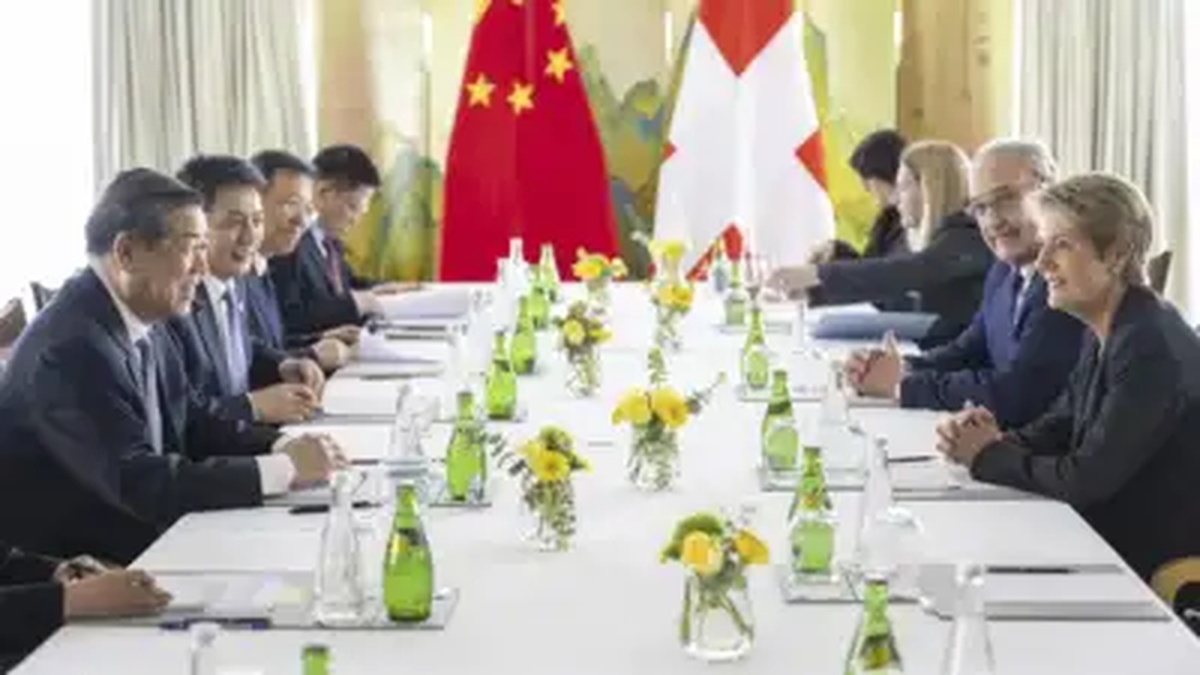Physical Address
304 North Cardinal St.
Dorchester Center, MA 02124
Physical Address
304 North Cardinal St.
Dorchester Center, MA 02124

Senior U.S. and Chinese officials launched U.S.–China trade talks in Geneva on Saturday, May 10, 2025, aiming to ease tensions that have stalled nearly $600 billion in bilateral trade and disrupted global supply chains. The discussions mark the first face-to-face meeting between both sides since tit-for-tat tariffs took effect earlier this year.
The negotiations are scheduled to continue through Sunday, with a possible extension into Monday if momentum builds.

The U.S.–China trade talks feature Treasury Secretary Scott Bessent and U.S. Trade Representative Jamieson Greer on the American side. Vice Premier He Lifeng leads the Chinese delegation.
Switzerland helped broker the meeting, with Economy Minister Guy Parmelin calling it a “success” simply for bringing the two parties together in person.
Takeaway: Just restarting dialogue is already a meaningful step.
The U.S. has imposed a 145% tariff on Chinese imports. In response, China hit back with 125% tariffs on American goods. The result: a sharp freeze in bilateral trade and cascading effects on pricing, logistics, and inflation.
Businesses are scrambling for workarounds. American firms are replacing Chinese suppliers, and Chinese exporters are diverting shipments. Economists warn that continued strain could slow global growth and push the U.S. economy toward recession.
Takeaway: The trade war’s effects extend far beyond Washington and Beijing.
Expectations are low. Both sides want to avoid appearing weak, and few analysts foresee a breakthrough. But the tone is notably different.
President Trump labeled the U.S.–China trade talks a “total reset” and said “great progress” was made—though he didn’t share details. He also floated reducing tariffs to 80%, hinting at flexibility for the first time.
China, meanwhile, seeks a 90-day waiver, similar to what the U.S. has offered other nations. Chinese state media called the talks “positive” but criticized the U.S. for its “reckless abuse of tariffs.”
Takeaway: Even a shift in tone can influence markets and momentum.

While no deal has been announced, insiders say the U.S.–China trade talks could extend into Monday. Officials have released no joint statements and kept negotiation details under wraps.
Still, any roadmap for further talks or signs of tariff relief would be welcomed by businesses and investors.
The World Trade Organization praised the meeting as “constructive,” noting that formal dialogue is better than silence.
Takeaway: Small steps forward can prevent bigger economic setbacks.
The U.S.–China trade talks in Geneva may not end the tariff war, but they represent a cautious re-entry into diplomacy. Even without a deal, just talking might be enough to stabilize nerves—for now.
Get the Daily News Without B.S. Report—clear, concise news with zero noise. Straight to your inbox.